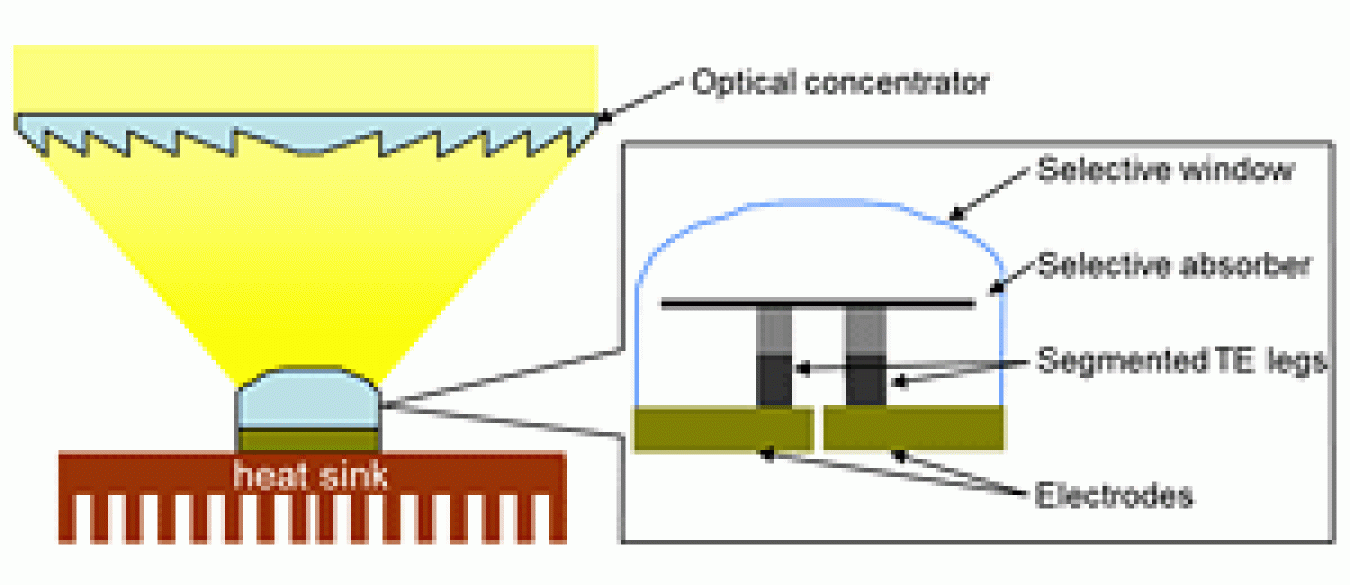-- This project is inactive --
The Rohsenow Kendall Heat Transfer Laboratory at Massachusetts Institute of Technology (MIT), under the 2012 SunShot Concentrating Solar Power (CSP) R&D FOA, is developing concentrated solar thermoelectric generators (CSTEGs) for CSP systems. This innovative distributed solution contains no moving parts and converts heat directly into electricity. Thermal storage can be integrated into the system, creating a reliable and flexible source of electricity.
Approach
The goals of MIT's CSTEGs project are to:
- Achieve a >10% solar-to-electricity energy conversion efficiency
- Limit optical concentration to less than ten and potentially less than four
- Demonstrate the potential for 24-hour operation by using phase-change materials.

Thermoelectric energy conversion uses temperature difference across solids to convert heat into electricity through the Seebeck effect.
Innovation
MIT's innovative approach is a significant departure from current CSP systems. The solar thermoelectric generators are based on solid-state thermoelectric devices, and yet, they can store solar energy in the form of heat. When combined with thermal storage, such CSTEGs can provide electricity day and night while eliminating the mechanical power generation blocks. Furthermore, CSTEGs can also be used at small scale, such as commercial rooftops, to provide 24-hour distributed solar power. If successful, CSTEGs introduce a new and viable CSP technology capable of achieving the SunShot Initiative's goal of $0.06 per kilowatt-hour.
Publications, Patents, and Awards
The SunShot CSP R&D program seeks to accelerate progress toward the cost target of $0.06 per kilowatt-hour through novel and revolutionary research into CSP technologies. Learn about other concentrating solar power research.

